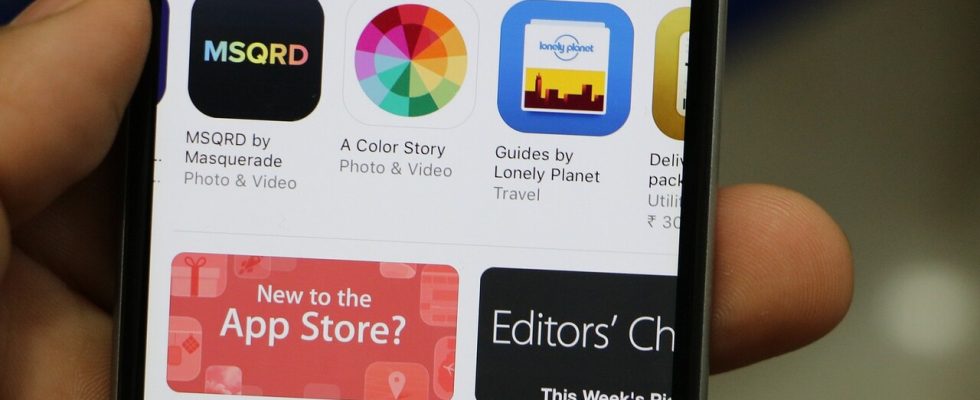Due to the Digital Market Act (DMA), Apple must allow alternative app stores and payment services in the EU from March. How the group implements these guidelines is causing criticism. There is talk of massive bureaucracy and a daunting cost structure, and EU Commissioner Thierry Breton is already threatening consequences.
The company will have to expect tough measures if the DMA requirements are not met, said Breton, according to a report by the news agency Reuters. From March 7th, the EU Commission wants to generally examine how the companies affected by the DMA implement the requirements. If the competition authorities then uncover grievances, they don’t want to hesitate.
New freedom with new fees
The EU actually wants to disempower dominant platform operators like Apple with the Digital Market Act (DMA). The goal is more competition and greater choice for users. In addition to Apple and the App Store, this also applies to other services such as Facebook, Instagram, WhatsApp and TikTok in the social media sector. In addition to iOS, Windows and Android are also affected in the operating systems, and Google in the search engines.
As a result of the DMA, Apple now has to allow alternative app stores, which is a first. So far, the company has relied on a sealed ecosystem, officially justified by the increased security for users because malicious software can be filtered out at an early stage. Only Apple also uses this level of control to enforce the 30 percent of sales fees that app providers must pay.
But the hurdles for alternative app stores or alternative payment systems in the existing app store are high. The app providers still have to pay a commission of up to 17 percent of sales. What is causing a particular stir is the Core Technology Fee (CTE), which is 0.50 euros for every first installation within a year – this requirement also includes new installations and updates. Analysts rate CTE in particular as: Eric Benjamin Seufert as a Trojan horse that massively limits the attractiveness of alternative app stores.
One of the arguments: By limiting both new installations and updates the number of free installations, developers lose control over when they have to pay. If in doubt, pure app downloads can be limited; new installations and updates cannot be done. In addition, developers have no interest in rolling out a security update if they are already in the border region.
The alternative app store is therefore less interesting, especially for smaller developers, because the costs could explode if they are very successful. If anything, this concept is of interest to the industry giants.
Epic speaks of “malicious compliance”, Spotify of blackmail
Epic Games, which has been fighting with Apple over the App Store cost structure for some time, has already announced an Epic Games Store. Fortnite is returning to iOS. But people are not satisfied, Tim Sweeney described the new fee schedule as “malicious compliance“. Apple forces developers to decide: between the exclusivity of the App Store and the rules that apply there but contradict the DMA or a “also illegal, anti-competitive system“.
Spotify designated Apple’s new system is blackmail. If Spotify stays in the App Store but wants to process the in-app purchases yourself, you will still have to pay a fee of 17 percent and the core technology fee of 0.50 euros per installation per year. So either nothing changes or you are even worse off. A complete move to alternative app stores would also not be an option because the costs of acquiring customers could increase tenfold. And Spotify would also have to pay for every app installation or update. In effect, Apple forces app developers to stick with the status quo.
This alternative that offers no alternative at all completely negates the goal of the DMA. The European Commission designated Apple as a gatekeeper because of their excessive fees and anti-competitive terms. Apple has proposed an unworkable alternative that developers would have to be locked into until the end of their businesses. Essentially, Apple is rendering the DMA’s goals of offering more choice and more control to consumers uselessly.
Spotify
Given the reactions, it is foreseeable that lawsuits will come. It will also be interesting to see how quickly the EU reacts to the tests that will begin in March.

